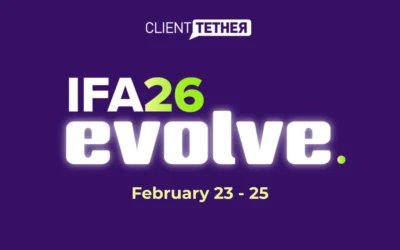When you’re running a franchise, every operational detail matters. Payment processing is no exception.
Surcharging, or passing along credit card fees to customers, might seem like a simple cost-saving move. But across the U.S., the rules are constantly shifting.
We’ve seen firsthand how small misunderstandings about surcharge regulations can lead to unnecessary friction or even non-compliance.
Let’s break down what franchisors need to know to stay compliant, transparent, and confident when managing payment processing.
TL;DR: Credit card surcharges can be legal but only in specific states, and only up to 4%. Debit surcharges are off-limits everywhere. With laws changing and margins shrinking, staying compliant and clear is more important than ever. TetherPay helps automate compliance, improve collections, and reduce friction for franchisees.
What’s the Difference Between Credit and Debit Surcharges?
Let’s start with the basics.
A credit card surcharge is when a merchant charges a customer an additional fee for using a credit card. A debit card surcharge is when the same happens with a debit card.
Here’s the deal:
- Credit card surcharges are generally legal in most states, but come with caveats.
- Debit card surcharges are illegal in all 50 states, no exceptions.
Make sure your team and your franchisees understand this distinction.
What you can charge—and how you talk about it—is not a matter of preference or how you can up your franchise. It depends on the law.
The 4% Federal Cap
Even in states where credit card surcharging is legal, federal law caps it at 4% of the total transaction.
That means if a customer spends $100, the maximum surcharge you can tack on is $4.
But here’s the thing: that’s just the ceiling. Many states place tighter restrictions or require additional disclosures. So knowing your state-specific requirements is key.
Payment Processing State-by-State
Across the country, the surcharge landscape feels a bit like patchwork. There’s no national standard and each state can change its regulations eventually.
Here are a few highlights from the latest updates:
- Illegal in four states: California (as of July 1, 2024), Connecticut, Maine, and Massachusetts ban credit card surcharges altogether.
- Legal with conditions in many states: States like Colorado, New York, New Jersey, and Nevada allow surcharges if they don’t exceed the merchant’s cost and are clearly disclosed before the sale.
- States with no prohibition: Places like Texas, Florida, and Illinois generally allow surcharging under federal rules, but may have additional notice requirements.
The takeaway: you can’t assume what’s legal in one state will fly in another.
If you’re operating in multiple territories, your franchise system needs flexible processes that adapt to local regulations.
Grab our cheatsheet below and have it by your side whenever you might need it.
How Can Franchisors Stay Compliant and Avoid Customer Friction?
Of course, staying compliant matters. But surcharging is also about perception.
If your customer sees an unexpected fee pop up at checkout—especially without context—it creates a point of friction. Transparency is non-negotiable.
You need to:
- Post clear notices at the point of sale (online and offline).
- Explain what the fee is and why it exists.
- Offer alternatives, like cash or ACH, where appropriate.
In states like Georgia or Minnesota, offering another payment method may be the only way to apply a surcharge at all.
If you’re using a modern payment processing system like TetherPay, these disclosures can be built into your checkout experience. No awkward last-minute explanations needed.
Payment Processing Systems Make the Difference
There are many things that set top-performing franchise brands apart, and how well their operations scale sits among the top. That does include payment processing.
With TetherPay, franchisees can:
- Apply surcharges where legal and compliant.
- Streamline payment collections from clients.
- Ensure data consistency between Quickbooks franchise owner revenue reported and CRM reporting (using our Quickbooks integration).
Forget nickel-and-diming your customers.
If your Franchise CRM isn’t empowering owners to protect their margins without legal risk or operational confusion, it might be time for an upgrade.
Stay Informed, Stay Aligned
The surcharge conversation isn’t going away. In fact, with interchange fees on the rise and profit margins tighter than ever, it’s becoming a more frequent discussion across franchise brands.
That’s why we recommend:
- Reviewing your policies quarterly.
- Training your teams regularly.
- Consulting legal experts before making changes.
And if you’re looking to simplify it all, we’re here to help.
Ready to streamline your payment processing?
Reach out to your Client Success Partner or chat with us to see how TetherPay helps you grow smarter.




